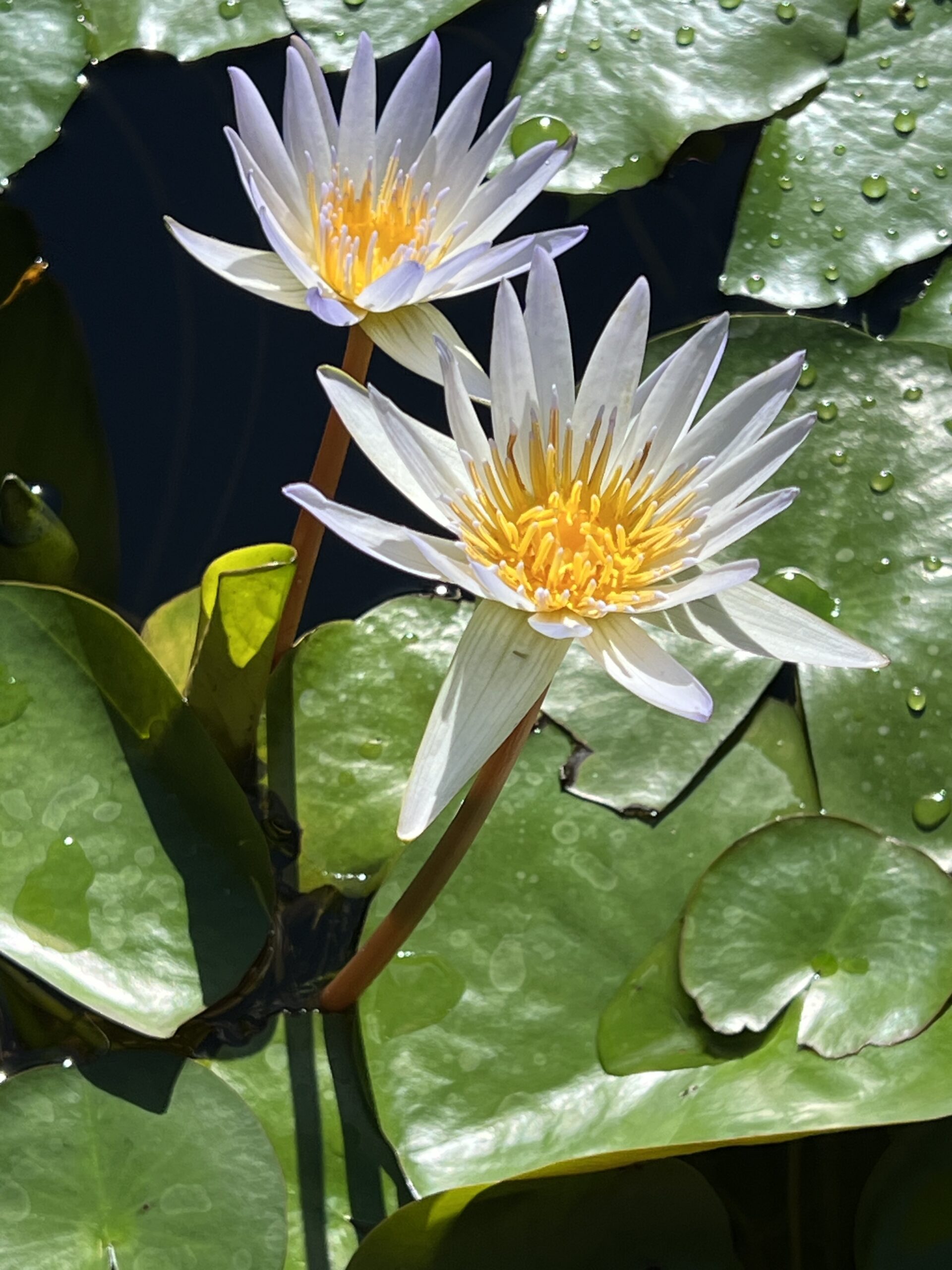June 3, 2024
VATA TIME
“You may find it challenging to avoid giving in to the temptation to rush, particularly if you have acclimated to a world of split-second communication with cell phones, emails, and overflowing agendas. Yet, the sense of continuous accomplishment you lose when you slow down will quickly be replaced by feelings of magnificent contentment. Your relaxed tempo will open your mind and heart to deeper levels of awareness that help you discover the true gloriousness of being alive.” (Daily Om, 03/07/24)
En route to the pool shortly after dawn the other morning, I slowed to let a couple of adult geese amble across the road to join what looked like a gosling nursery. At a quick glance there appeared to be over two dozen goslings, just starting to feather out, while a much smaller number of adult birds circulated among them. These I designated the parental geese, still supervising their rapidly growing youths. On the opposite side of the road were what I deemed the slower, senior geese, content to leave “child-rearing” to the younger, more agile birds who could, in a pinch, get out of the way of less mindful motorists. I noticed that this phenomenon only takes place at dawn; later on, as traffic builds the geese wisely head for the beach. Of course, this anthropomorphizing is my way of placing my own “seniority” in the context of another facet of the natural order.
In Ayurveda (think India’s version of Traditional Chinese Medicine) the lifespan of a human being is roughly divided into three stages, or doshas, that are named kapha dosha, or youth; pitta dosha, or middle age; and vata dosha, or old age. (Incidentally, Vedanta philosophy, also from India, divides the human lifespan into four stages: youth or student stage; householder or career stage; retirement or spiritual seeker; and, in ideal cases, the sage or enlightened stage.) Having been steeped in these eastern teachings for close to four decades, I’ve lately been drawn to the latter in search of a context for, and road map through, the unprecedented time of life that I am now experiencing.
Since getting my hip replaced in January (if not before, during the months that I couldn’t bike, hike, do yoga, etcetera) I have had rude awakening upon physical rude awakening. My orthopaedic surgeon’s glib remark that I could expect to resume my previous level — or at least variety — of physical activity at around three months post-surgery, set a bar that I’m not even close to achieving. In fact, rather than the steady improvement I anticipated, I’ve hit one figurative speed bump after another.
I need not elaborate on what are, at best, minor blips on the scale of world problems, yet these setbacks have effected my general outlook to what I deem an unhealthy degree. As I observe the senior citizens (my contemporaries) who populate much of West Vancouver, I register with some chagrin the varying degrees of disability that seem to presage my imminent future. This in turn threatens a mental slide into an “Is this all there is?” defeatism that is potentially more crippling than any physical difficulties.
A first step in getting my mind off this negative trajectory is to simply be curious. In my journal I note what’s happening physically, mentally, emotionally and spiritually. Curiosity gives me the count-to-ten objectivity that I need to calm any “catastrophic thinking” I might be doing. Using a few key words that I remember from Ayurveda in an internet search, I find a wealth of information on the Vata time of life. I realize that few people of my acquaintance have heard of Vedanta philosophy or Ayurveda, but I’m in no doubt that many of us at this age and stage are struggling with similarly discouraging infirmities, and are vulnerable to the negative thinking that we build around these. One pundit calls this double suffering: we have the physical pain of, say, a sore hip, and the mental pain of imagining it never getting better! My particular narrative goes something like: “Will I ever be able to bike again? Should I just sell my bike and take up monopoly? Dominoes? Mah jongg? I don’t have the concentration required for playing bridge, or the New York Times crosswords. Whatever am I going to do?”
This is why it was so encouraging to read the positive spin that Ayurveda puts on Vata time. In Ayurveda, this stage of life sees a silver lining in the physical decline and even decrease in cognitive abilities. Instead of climbing new external mountains and seeking ever greater external achievements, the individual is encouraged to step back from worldly concerns and learn to savour “the true gloriousness of being alive”.
This is not as easy as it sounds, but I am learning to adopt a gentler, more introspective pace. Hopefully more purposefully than those seagulls who go nowhere, slowly. More like the geese who stay on the beach-side of the street!
